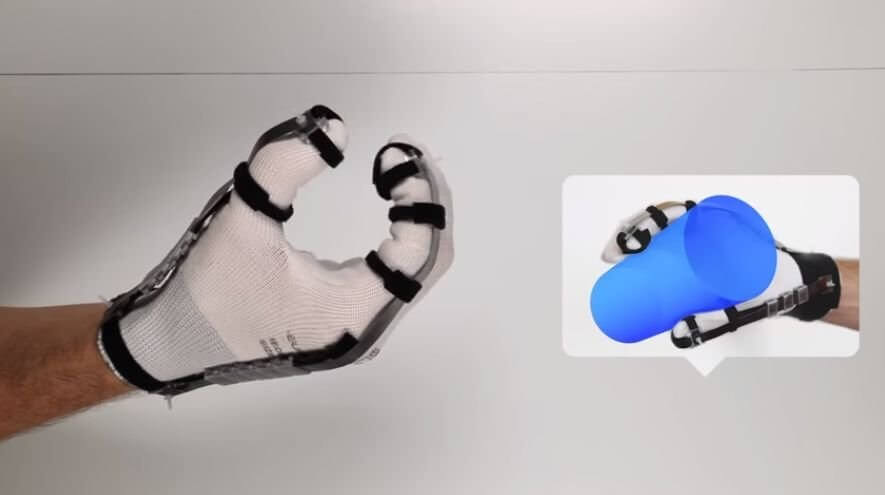Forward-looking: The race for haptic feedback in VR heats up as new technologies emerge that reduce weight and power demand. A glove currently in development by a research team in Switzerland only requires 200V and a few milliWatts to operate and weighs just around 40 grams.
In the race for a haptic feedback glove for virtual reality, we have reported on a couple of contenders. Contact CI and HaptX both have gloves that have not quite hit the market --- the Maestro and HaptX Gloves respectively. These companies may soon be joined by a competitor that is looking at displacing them by offering a glove that is lighter and consumes less power.
Researchers at the École Polytechnique Fédérale de Lausanne (EPFL) and Eidgenössische Technische Hochschule (ETH) in Zurich are working on a light-weight haptic feedback glove called "DextrES" for use in VR applications. The material of the device is only 2mm thick, and the components weigh only about 8 grams per finger. It is very streamlined and nowhere near as bulky as other VR haptic solutions.
Despite its small form factor, the glove is capable of generating up to 40 Newtons of resistance on each finger. What's more is that it only requires a few milliWatts to function. While the prototype is currently tethered to a power source, the gloves low power consumption gives it the potential to run off a small battery.
"We wanted to develop a lightweight device that - unlike existing virtual-reality gloves - doesn't require a bulky exoskeleton, pumps or very thick cables," said Herbert Shea, head of EPFL's Soft Transducers Laboratory told Tech Xplore.

The way it works is the nylon glove is lined with thin "elastic metal" strips that cover the tops of the fingers. When the user grips something in VR, the device sends a voltage difference between the metal pieces giving them an electrostatic charge and causing them to stick together. Once the voltage is removed the glove becomes pliable again.
The project is still in the early stages, so is probably not going to pose a threat just yet to the companies currently trying to get their systems to market. However, it may end up being in the next generation of haptic feedback gloves. The team even says that it is planning on developing a full VR suit using similar technology.
"Gamers are currently the biggest market, but there are many other potential applications - especially in healthcare, such as for training surgeons. The technology could also be applied in augmented reality," said Shea.
The project is being conducted jointly with EPFL heading up hardware development and ETH Zurich handling software and testing. It is too early to say whether they plan to form a company to market the product themselves or sell the rights to a third-party manufacturer.